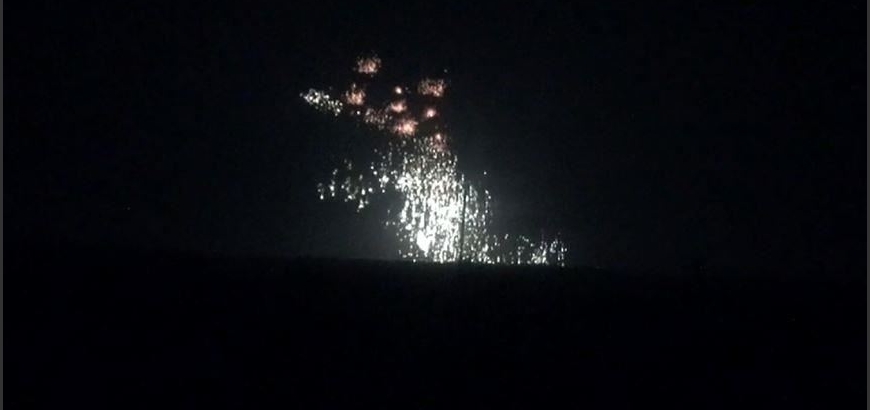Assad regime forces and militias backed by Iran carried out an attack using white phosphorous, which is banned internationally, on the town of al-Tamanah in the Idleb countryside in the country’s north.
The director of the Civil Defense (the White Helmets) in Idleb, Mustafa Hajj Youssef, told Anadolu that regime forces carried out two attacks and fired 40 shells loaded with white phosphorous in each attack.
He added, “We still do not have information about the number of dead and wounded from the attacks.” He said that Assad’s forces and Iran’s militias, which are deployed in the town of Abou Dali in the Hama countryside, participated in the attack.
According to images published by Anadolu, it appears clear that white phosphorous shells fell on the town, despite their use being banned internationally.
White phosphorous burns human flesh and leaves nothing but bones, while long-term inhalation causes injuries to the mouth and can cause rotting in the jaw.
The Geneva Convention of 1980 banned the use of white phosphorous against civilians and even against enemies in areas where civilians live, considering this to be a war crime.
Most of the residents of the town of al-Tamanah were forced to flee their homes because of regime forces stepping up attacks on the town this year.
In a related development, the town of Kafr Zeita and the towns of al-Latmanah and Muruk in Hama were hit with artillery fire from Assad regime forces.
Attacks by the regime and Iran’s militias on the “de-escalation zone” have increased recently in a violation of the Sochi agreement.
The land and air attacks on the de-escalation zone have killed 124 civilians and wounded 362 others since the start of the year.
The Sochi agreement was signed by Turkey and Russia in September 2018 with the aim of establishing a ceasefire in Idleb. In accordance with the deal, the opposition pulled their heavy weapons out of the area defined in the agreement on Oct. 10, 2018.
This article was translated and edited by The Syrian Observer. Responsibility for the information and views set out in this article lies entirely with the author.


